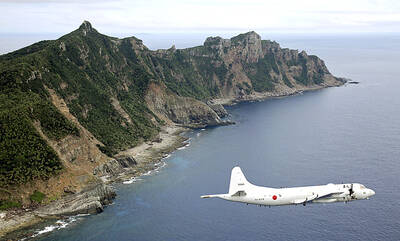Honda Motor Co is recalling the popular Accord and Civic passenger cars to address problems with an ignition switch that could allow the key to be removed without the transmission being shifted into park, its third recall over the problem since 2003.
Honda said the most recent recall involved 384,220 vehicles and includes 2003 model year Accord and Civics and 2003 to 2004 versions of the Honda Element. Honda told the US National Highway Traffic Safety Administration that the defect with the automatic transmissions could lead to a vehicle rolling away and increase the risk of a crash.
The Japanese automaker said in a statement the recall would involve about 197,000 Accords, 117,000 Civics and 69,000 Elements. The recall is expected to begin late next month.
The company said it has received several complaints about the ignition interlock and “is aware of a small number of related incidents, including one that resulted in a minor injury.”
Honda said the ignition interlock mechanism could be damaged or worn during use and “it may become possible to remove the ignition key when the shift lever is not in park.”
Unless the parking brake is set, the vehicle could roll away under those circumstances and lead to a crash.
The three related recalls have involved about 1.4 million vehicles since 2003. Honda recalled more than 560,000 minivans and sedans, including the 1998 to 1999 Accord, to correct the ignition park-shift interlock defect in October 2003. In January 2005, Honda recalled nearly 490,000 passenger cars, including certain 1999 to 2002 Accords, because of the ignition switch problem.
Meanwhile, Toyota has cut 600 workers at its Japanese factories, the company said yesterday, as it prepares for a drop in local sales when incentives for green cars run out next month.
Toyota Motor Corp employed a total of 2,400 contract workers at the end of last year, it said.
Contract workers are hired under different terms from other employees at Toyota, mainly to make it easier to increase or cut the numbers of workers in response to fluctuating demand for cars. The world’s biggest automaker employs 320,000 people globally and 70,000 of those workers are in Japan.

MISINFORMATION: The generated content tends to adopt China’s official stance, such as ‘Taiwan is currently governed by the Chinese central government,’ the NSB said Five China-developed artificial intelligence (AI) language models exhibit cybersecurity risks and content biases, an inspection conducted by the National Security Bureau (NSB) showed. The five AI tools are: DeepSeek, Doubao (豆包), Yiyan (文心一言), Tongyi (通義千問) and Yuanbao (騰訊元寶), the bureau said, advising people to remain vigilant to protect personal data privacy and corporate business secrets. The NSB said it, in accordance with the National Intelligence Services Act (國家情報工作法), has reviewed international cybersecurity reports and intelligence, and coordinated with the Ministry of Justice Investigation Bureau and the National Police Agency’s Criminal Investigation Bureau to conduct an inspection of China-made AI language

BOOST IN CONFIDENCE: The sale sends a clear message of support for Taiwan and dispels rumors that US President Donald Trump ‘sold out’ the nation, an expert said The US government on Thursday announced a possible sale to Taiwan of fighter jet parts, which was estimated to cost about US$330 million, in a move that an expert said “sends a clear message of support for Taiwan” amid fears that Washington might be wavering in its attitude toward Taipei. It was the first announcement of an arms sale to Taiwan since US President Donald Trump returned to the White House earlier this year. The proposed package includes non-standard components, spare and repair parts, consumables and accessories, as well repair and return support for the F-16, C-130 and Indigenous Defense Fighter aircraft,

CHECKING BOUNDARIES: China wants to disrupt solidarity among democracies and test their red lines, but it is instead pushing nations to become more united, an expert said The US Department of State on Friday expressed deep concern over a Chinese public security agency’s investigation into Legislator Puma Shen (沈伯洋) for “secession.” “China’s actions threaten free speech and erode norms that have underpinned the cross-strait ‘status quo’ for decades,” a US Department of State spokesperson said. The Chongqing Municipal Public Security Bureau late last month listed Shen as “wanted” and launched an investigation into alleged “secession-related” criminal activities, including his founding of the Kuma Academy, a civil defense organization that prepares people for an invasion by China. The spokesperson said that the US was “deeply concerned” about the bureau investigating Shen

DISPUTE: A Chinese official prompted a formal protest from Tokyo by saying that ‘the dirty head that sticks itself out must be cut off,’ after Takaichi’s Taiwan remarks Four armed China Coast Guard vessels yesterday morning sailed through disputed waters controlled by Japan, amid a diplomatic spat following Japanese Prime Minister Sanae Takaichi’s comments on Taiwan. The four ships sailed around the Senkaku Islands — known as the Diaoyutai Islands (釣魚台) to Taiwan, and which Taiwan and China also claim — on Saturday before entering Japanese waters yesterday and left, the Japan Coast Guard said. The China Coast Guard said in a statement that it carried out a “rights enforcement patrol” through the waters and that it was a lawful operation. As of the end of last month,